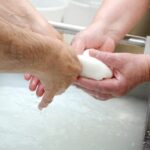Mannacote is an advanced coating system designed for industrial and commercial applications where high durability, corrosion resistance, and performance longevity are critical. Engineered using modern chemical technologies, Mannacote delivers a protective layer that enhances the surface it is applied to—whether that’s metal, concrete, or composite materials.
Used across sectors like construction, marine, automotive, and heavy equipment, Mannacote offers a versatile and reliable solution for extending product lifespan, reducing maintenance, and withstanding extreme environmental conditions.
How Mannacote Works
Mannacote works by forming a high-performance barrier between a surface and its surrounding environment. The coating is typically made of polymer-based compounds, which may include epoxies, polyurethanes, or other synthetic resins. Once applied and cured, Mannacote becomes an impermeable layer that resists:
-
Water infiltration
-
UV radiation
-
Chemicals and solvents
-
Abrasion and mechanical wear
Depending on the formulation, Mannacote may be applied by spray, brush, or roller and often cures at room temperature—making it user-friendly even for on-site applications.
Key Features of Mannacote
1. Corrosion Resistance
Mannacote offers outstanding protection against rust and oxidation, especially on metal surfaces. This makes it ideal for marine and coastal environments where salt exposure is a concern.
2. Chemical Protection
Industrial environments often expose surfaces to harsh chemicals. Mannacote’s chemical resistance ensures that acids, alkalis, and solvents do not degrade the underlying materials.
3. UV and Weather Shield
Unlike traditional paints or surface treatments, Mannacote includes UV-stable components, preventing discoloration and deterioration due to prolonged sun exposure.
4. Flexibility and Adhesion
The coating adheres strongly to a variety of substrates and flexes with material expansion or contraction—reducing the risk of cracking or peeling.
5. Eco-Friendly Options
Many Mannacote variants are formulated with low VOCs (volatile organic compounds), meeting environmental and occupational safety standards.
Applications of Mannacote Across Industries
1. Construction and Infrastructure
-
Bridges and highways
-
Water tanks and pipes
-
Concrete floors in industrial facilities
2. Marine and Offshore
-
Ships and boat hulls
-
Docks and oil platforms
-
Saltwater-exposed metal structures
3. Automotive and Transportation
-
Chassis protection
-
Vehicle undercoating
-
Parts exposed to road chemicals or weather
4. Manufacturing and Warehousing
-
Equipment housings
-
Storage tanks
-
Interior flooring and containment areas
5. Agriculture and Food Processing
-
Silos and grain bins
-
Dairy and meat processing environments
-
Fertilizer storage
These applications highlight Mannacote’s flexibility across high-stakes environments where other coatings may fail prematurely.
Benefits of Using Mannacote
Extended Lifespan of Equipment and Surfaces
By resisting corrosion and wear, Mannacote minimizes the need for frequent repairs or replacements.
Reduced Maintenance Costs
Surfaces treated with Mannacote require less cleaning, recoating, or structural reinforcement over time.
Improved Safety and Compliance
In food-grade and cleanroom environments, Mannacote can be customized to meet strict hygiene and regulatory standards.
Time and Labor Efficiency
Easy application and fast curing times reduce labor expenses and facility downtime during maintenance.
Custom Formulations Available
Mannacote is often available in variations tailored to specific industry needs, including fire-retardant, anti-microbial, or thermal-resistant versions.
How to Apply Mannacote: Best Practices
1. Surface Preparation
Proper surface prep ensures adhesion. This might include:
-
Sandblasting or wire brushing for metal surfaces
-
Pressure washing for concrete
-
Chemical etching for slick surfaces
2. Primer Application
In some cases, a compatible primer is used to enhance bonding, especially in highly porous or corroded substrates.
3. Coating Process
-
Single or multi-coat systems depending on usage
-
Can be applied using brush, roller, or airless spray
-
Ideal curing conditions: dry and well-ventilated area
-
Some formulas allow fast touch-dry in 1–2 hours
4. Inspection and Quality Control
Post-application, the coating is tested for:
-
Thickness consistency
-
Adherence and bonding
-
Surface finish and uniformity
This ensures long-term performance and minimizes defects.
Recent Developments and Innovations
1. Nano-Technology Integration
Recent versions of Mannacote incorporate nano particles to improve scratch resistance and self-healing properties.
2. Smart Coatings
R&D is underway to develop Mannacote variants that can detect stress, change color with temperature, or release corrosion inhibitors on demand.
3. Sustainable Formulations
Bio-based and waterborne Manna cote options are gaining popularity for reducing environmental impact during application and disposal.
Who Can Use Mannacote?
-
Industrial maintenance teams
-
Marine engineers and shipyards
-
Facility managers
-
OEM manufacturers
-
DIY professionals (for approved residential uses)
Mannacote is not limited to commercial contractors—training and support are often available for in-house or certified users.
Choosing the Right Mannacote Product
Not all surfaces require the same level of protection. Factors to consider when selecting the right Manna cote variant include:
-
Type of substrate (metal, concrete, plastic, etc.)
-
Exposure environment (moisture, chemicals, temperature)
-
Required finish (glossy, matte, anti-slip)
-
Compliance requirements (food-grade, anti-corrosive, UV-resistant)
Consulting with a certified dealer or representative can ensure the best fit for your project.
Cost of Mannacote Application
While the upfront cost of Manna cote may be higher than traditional coatings, its longer lifespan and reduced maintenance deliver a lower total cost of ownership over time.
Average Factors Influencing Cost:
-
Surface area to be coated
-
Number of coats needed
-
Application method (manual vs. spray)
-
Curing time and environmental controls required
-
Surface preparation requirements
Conclusion: Why Mannacote is the Future of Coating Solutions
In a world where efficiency, durability, and sustainability are increasingly valued, Mannacote stands out as a next-generation coating solution. It doesn’t just protect surfaces—it extends their life, reduces costs, and enhances safety.
Whether you’re in manufacturing, marine engineering, or infrastructure development, investing in Manna cote means investing in performance. As surface challenges grow, so does the need for smart, adaptive, and long-lasting protection—and Manna cote is leading the way.






